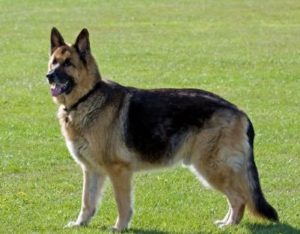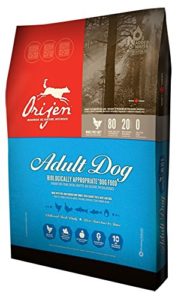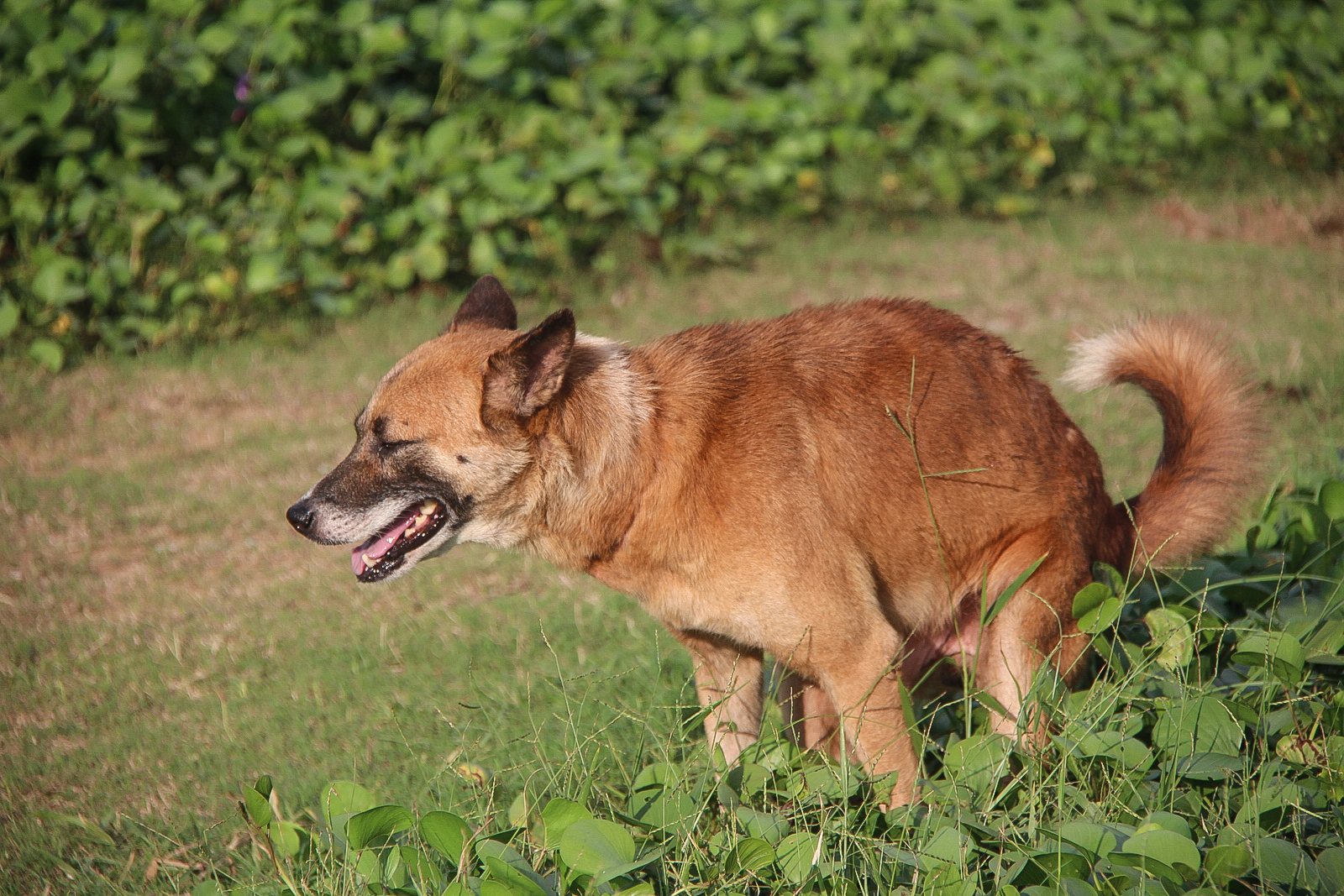Last Updated on June 11, 2024
German Shepherds consistently rank among America’s most beloved breeds, known for their intelligence, loyalty, and athleticism. Whether serving as working dogs or cherished family members, these energetic canines need a diet that fuels their active lifestyles. This article will guide you through selecting the best dog food to keep your German Shepherd happy, healthy, and thriving.
Understanding Your German Shepherd’s Nutritional Needs
 German Shepherds are a medium-to-large breed with significant muscle mass. To support their strength and energy levels, they require a diet rich in protein and healthy fats. Here’s a general guideline:
German Shepherds are a medium-to-large breed with significant muscle mass. To support their strength and energy levels, they require a diet rich in protein and healthy fats. Here’s a general guideline:
- Protein: Aim for a minimum of 22% protein content for growing puppies and 18% for adult maintenance.
- Fat: A fat content of 5-8% is ideal for active German Shepherds.
- Calorie Considerations: An active adult German Shepherd needs approximately 1720 to 2100 calories per day. Adjust this amount based on your dog’s activity level. If your dog is less active, reduce their calorie intake accordingly to prevent weight gain.
Decoding Dog Food Labels:
- Ingredient List: Always check the first five ingredients listed on the label, as they make up the bulk of the food. Look for a named meat source (e.g., chicken, beef, fish) as the primary ingredient.
- Omega Fatty Acids: These essential fats promote healthy skin and a shiny coat. Look for ingredients like fish oil or flaxseed.
Choosing the Right Food: Key Factors to Consider
Selecting the optimal diet for your German Shepherd involves considering several key factors that directly impact their health and well-being.
Life Stage: A dog’s nutritional needs change throughout their life, and their food should reflect these evolving requirements. Puppies, with their rapid growth and development, require higher levels of protein and fat than adult dogs. Once your German Shepherd reaches adulthood, their diet should transition to a balanced formula that supports their energy levels and maintains their muscle mass. As dogs enter their senior years, they may benefit from specialized formulas tailored to address age-related concerns, such as joint health or reduced activity levels.
Activity Level: Just like humans, a dog’s calorie needs are directly tied to their activity level. A highly active German Shepherd, perhaps one who accompanies you on runs or participates in canine sports, will naturally require a higher calorie intake than a less active counterpart. Carefully monitor your dog’s weight and adjust food portions accordingly to ensure they maintain a healthy body condition.
Health Conditions: If your German Shepherd has specific health concerns, such as allergies, sensitivities, or other medical conditions, consulting with your veterinarian for dietary recommendations is essential. They can guide you toward specialized formulas designed to address these specific needs and promote your dog’s overall well-being.
Top-Quality Ingredients for Your German Shepherd
When selecting a dog food brand, prioritize those that use high-quality ingredients and avoid fillers, artificial additives, and by-products. Look for:
- Real Meat and Poultry: Chicken, beef, fish, and lamb are excellent sources of protein.
- Whole Grains (Optional): Brown rice, oatmeal, and barley provide carbohydrates for energy.
- Fruits and Vegetables: Offer essential vitamins, minerals, and antioxidants.
- Healthy Fats: Fish oil, flaxseed oil, and chicken fat contribute to skin and coat health.
Orijen Adult Dog Food: A Top Recommendation

When it comes to nourishing your active and discerning German Shepherd, Orijen Adult Dog Food emerges as a top contender in the realm of premium dog food. This brand has garnered a reputation for its unwavering commitment to high-quality, biologically appropriate ingredients that mirror the natural dietary patterns of canines.
What sets Orijen apart is its dedication to providing a diet rich in animal protein, just as nature intended. Unlike many conventional dog foods that rely heavily on plant-based proteins, Orijen prioritizes fresh, regional ingredients, including free-run poultry, wild-caught fish, and cage-free eggs. These high-quality protein sources provide the essential amino acids your German Shepherd needs to build and maintain strong muscles, support a healthy weight, and fuel their boundless energy.
Beyond its impressive protein content, Orijen Adult Dog Food boasts a range of features that make it a standout choice for your beloved companion:
- Fresh, Whole Prey Ingredients: Orijen takes a “whole prey” approach, incorporating meat, organs, and cartilage in ratios that mimic a dog’s natural diet. This provides a complete and balanced spectrum of nutrients, eliminating the need for synthetic additives.
- Minimal Processing: Orijen utilizes gentle cooking methods to preserve the nutritional integrity of its ingredients. This means your German Shepherd benefits from the full spectrum of vitamins, minerals, and antioxidants naturally present in the food.
- Grain-Free Formula: Recognizing that grains are not a natural part of a canine’s diet, Orijen Adult Dog Food is entirely grain-free. This makes it an excellent option for dogs with grain sensitivities or allergies.
By choosing Orijen Adult Dog Food, you’re providing your German Shepherd with a diet that prioritizes their health and vitality. This biologically appropriate food nourishes them from the inside out, supporting their active lifestyle and contributing to their overall well-being.
Key Benefits:
- High Protein Content: With a minimum of 38% protein, Orijen fuels active muscles and supports a healthy weight.
- Fresh, Regional Ingredients: Orijen sources its ingredients fresh daily, ensuring optimal nutrient content.
- Limited Processed Ingredients: The minimal processing preserves the natural goodness of the ingredients.
FAQs About Feeding Your German Shepherd
Q: What type of protein is best?
A: Look for dog foods with meat sources like chicken, beef, fish, or lamb listed as the primary ingredient.
Q: Should I choose dry or wet food?
A: Both can be suitable. Wet food can be more appealing to picky eaters and aid in hydration, while dry food is convenient and often more affordable.
 Dog N Treats All dogs deserve to be pampered
Dog N Treats All dogs deserve to be pampered


